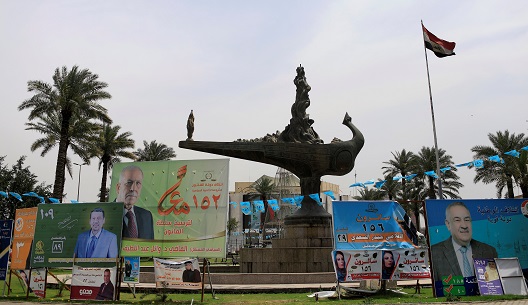
Iraqi citizens will vote in their fourth parliamentary election on May 12th, 2018, since the 2003 US invasion to remove Saddam Hussein from power. There is an increase of cross-sectarian and pro-reform parties this election. Experts predict this will prevent a single coalition from winning an outright majority in parliament, and that alliances will likely be formed after elections in order to gain a majority and elect a prime minister.
While Iraq has declared victory against ISIS and the US closed down its command office for ground troops in the country, US officials have stated that the battle is not over. The terrorist group condemned the elections, and threatened to attack polling stations along with those who run for office or vote. Less than a week before the elections, it continues to claim responsibility for attacks in Iraq, including the assassination of a parliamentary member in the town of Qayyarah.
Years of battle have wreaked havoc on Iraq’s economy. Millions are internally displaced, entire cities are in need of reconstruction, and sectarian tensions rise as Popular Mobilization Forces (PMU) militias—with varied affiliations and allegiances—no longer have ISIS as a common enemy to unite them. The question remains whether these paramilitary groups will be integrated into the Iraqi army or disbanded and disarmed, and what conflict may break out before this decision is made.
Additionally, both Sunni and Kurdish politicians expressed concerns that the election is being held too early, with many of Iraq’s displaced unable to return home and cast their votes. As a result, they say the final result may not reflect the will of the Iraqi people. The Iraqi government, however, argued that postponing the elections past May 12 would violate the constitution and hinder Iraq’s democratic process.

Shia coalitions
Currently, there are five major Shia coalitions in contrast with the one coalition, United Iraqi Alliance, that formed in 2005.
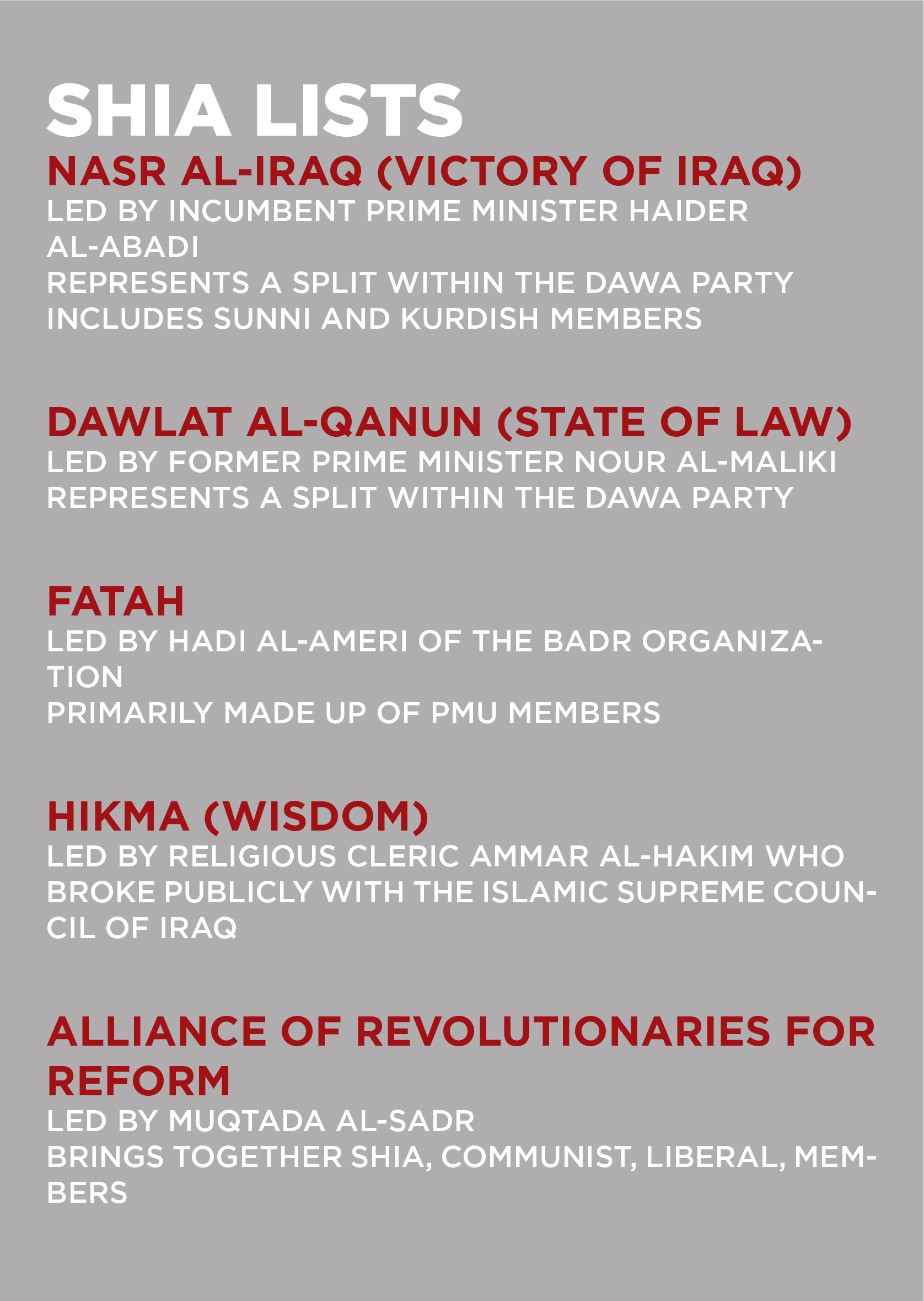
Nasr al-Iraq (Victory of Iraq) coalition
- Parties included: Shia Islamists with some Sunni candidates
- Led by: Prime Minister Haider al-Abadi
- Overarching Ideology: Abadi hopes to capitalize on the success of driving out ISIS and defeated what he calls separatism, a reference to blocking Kurdish attempts at independence, but which he characterizes as the unification of the country. This coalition is expected to win the majority of seats.
- Challenges: Abadi could face difficulties in gaining support from Kurds due to his harsh response to the Kurdish referendum, and he struggles to garner support from reformists and liberals. Controversy still looms over Abadi for his failed attempt in January at an alliance with the Islamist group Fatah, known for his criticism of them, and whose members comprise the political wing of Iran-backed militias.
- Position on Foreign Policy: Abadi remains neutral on the US coalition’s decision to intervene in Syria with strikes.
Dawlat al-Qanun (State of Law) coalition
- Led by: Former Prime Minister Nouri al-Maliki
- Overarching Ideology: Traditional, Secular, Shia; focuses on security, national reconciliation, and reconstruction by building and improving services
- Challenges: Its reputation over the past fifteen years includes corruption, divisiveness, and poor governance, and will be hard to garner large support. Recent polls indicate Abadi leads in favorability among the public.
- Position on Foreign Policy: Maliki’s 2017 visit to Moscow appears to show an alignment with Russian leadership.
The Islamist Fatah coalition
- Parties included: Eighteen Shia political groups such as the Badr Organization, and Iran-linked Shia paramilitary groups—largely made up of the PMU—including Asab Ahil al-Haq. Despite this, the coalition is popular among Iraqis in the south due to their efforts in the removal of ISIS and ongoing security.
- Led by: Hadi al-Ameri, leader of the Badr Organization, an Iran-backed militia.
- Overarching ideology: Religious rhetoric meant to invoke Shia pride and loyalty while focusing on security and restoring order and the rule of law in Iraq.
- Domestic policy: Known as the instrumental driving force in removing ISIS from Iraq.
- Position on foreign policy: Characterizes US involvement in Syria as aggressive and is calling for Abadi to push the United States to leave Syria.
Hikma (Wisdom) Coalition
- Parties included: Made up of those that split with Ammar al-Hakim from ISCI’s traditionalists.
- Led by: Ammar al-Hakim
- Overarching Ideology: Seeks to appeal to younger, more progressive generation.
- Challenges: Predicted to be the weakest Shia coalition.
The prominent religious cleric Ammar al-Hakim broke publicly with the Islamic Supreme Council of Iraq, forming the Wisdom party (Hikma), seeking to lead a new “non-Islamic national movement” and to end his close cooperation with Iran. He highlighted in his rhetoric the need for a political movement that involves citizens from around the country and includes all Iraqi people, possibly using the least sectarian language of any of the Shia coalitions.
Alliance of Revolutionaries for Reform
- Parties included: Iraqi Communist Party; leftists, and secular groups, Sadrist movement.
- Led by: Muqtada al-Sadr, popular Shia cleric.
- Overarching Ideology: Reformist. This movement is one of several in the upcoming elections that encourage Iraqis to lay aside religious affiliation and support political leaders based on policy instead. It is promoting its grassroots members as the platform emphasizes the youth, women, education, and technocratic government.
- Challenges: Allegedly is financially backed by Saudi Arabia
- Position on Foreign Policy: He has severed ties with Iran, paid a rare visit to Saudi Arabia in 2017, and is largely remaining fairly secular in his aspirations and language.
The Kurdish parties
Following the unsuccessful Kurdish referendum of September 2017, the Iraq government seized Kirkuk and oil fields from the KRG. This resulted in significant divisions among Kurdish parties. That, along with economic drivers, also resulted in widespread protests across the Kurdistan region in March.
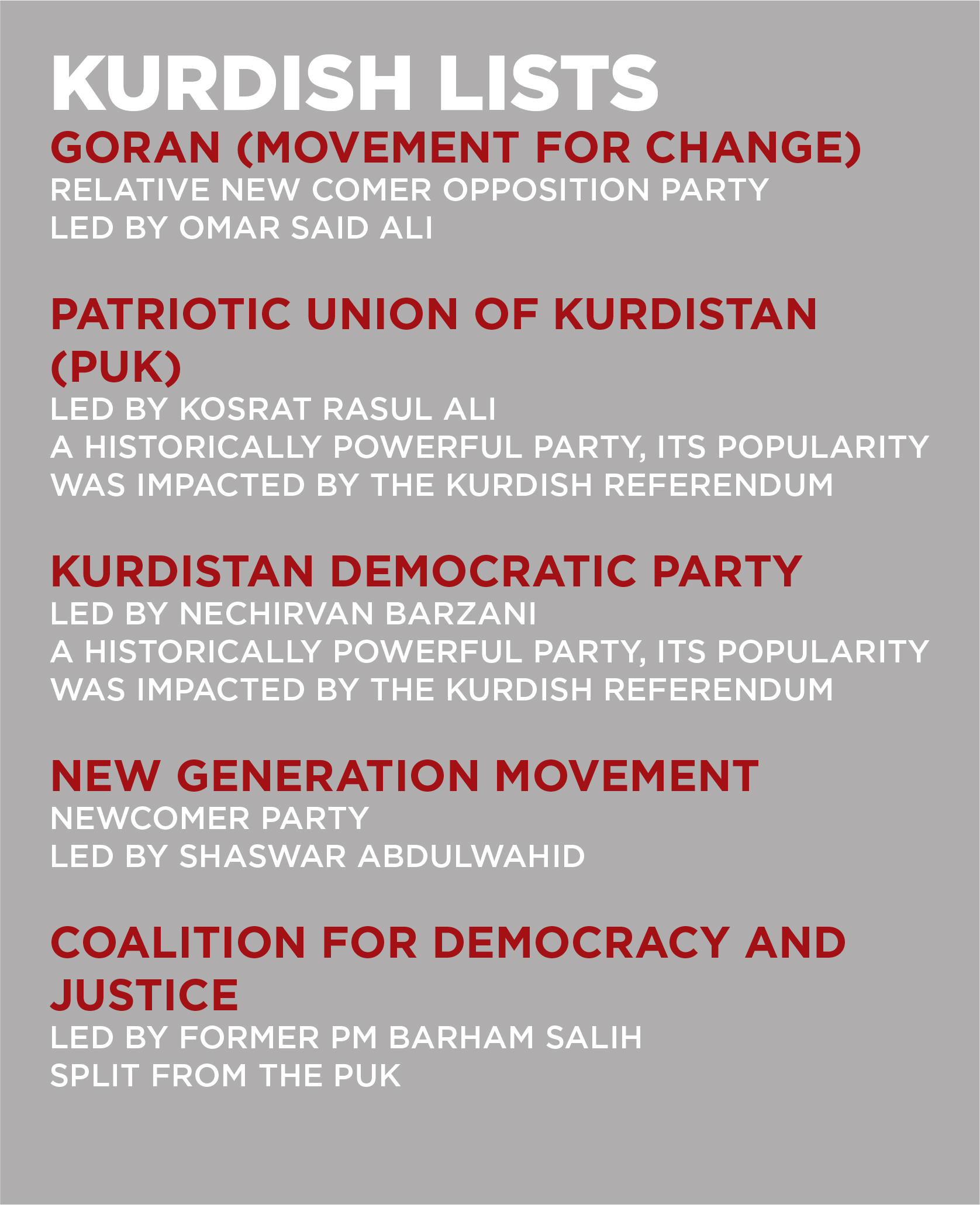
Gorran Movement for Change Party
- Led by: Omar Said Ali
- Overarching Ideology: Believes in a parliamentary system, civic and modern constitution, national unity of Kurdistan, and a call for referendum through Kurdish parliament.
- Challenges: Kurdish loyalty to KDP and PUK.
- Domestic policy: Platform is to improve the standard of living in the Kurdistan region due to the ongoing financial crisis.
- Foreign policy: Intent on building an independent economy is not dependent on the export of oil and at the mercy of neighboring countries.
Patriotic Union of Kurdistan (PUK)
- Led by: Kosrat Rasul Ali
- Overarching Ideology: Claims self-determination and human rights.
- Challenges: Is facing internal splintering into a number of smaller parties that has resulted in the formation of the Goran party.
Patriotic Union of the Kurdistan Democratic Party (KDP)
- Led by: Nechirvan Barzani
- Overarching Ideology: Claims democratic values and social justice at the core of its mission.
- Challenges: The emergence of dissident parties; faces criticism over corruption and aristocracy.
New Generation movement
- Led by: Shaswar Abdul Wahid
- Overarching Ideology: Holds progressive views and aims to change politics in Kurdistan as previous political parties are increasingly viewed with discontent.
- Challenges: The smallest and least popular of the four.
Coalition for Democracy and Justice
- Led by: former PM Barham Salih
- Overarching ideology: Running an anti-corruption, democratic, and good governance platform. Allied with the Gorran party and the Komal party. It is the largest opposition party to the coalition government of KDP and PUK.
- Challenges: Unsuccessfully campaigned to establish an interim government not led by PUK/KDP.
- Domestic policy: Focused on unemployment, youth homelessness, and women’s rights.
The popularity of Gorran, along with the newly-created the New Generation movement could further split the Kurdish vote.
The loss of Kirkuk following the referendum attempt was a loss of a major population center in terms of electoral votes for the Kurds, so as a result they are expected to lose seats. In 2014, Kurds won 62 of 329 parliamentary seats because it also included Kirkuk, Nineveh, Diyala and Baghdad, however, since losing these disputed areas, KDP announced that there will be no participation in areas outside of the autonomous region due to the absence of Kurdish security forces to protect voters. Because of this, the Kurds now have only 46 seats reserved in Iraq’s parliament for the three provinces of Erbil, Sulaymaniyah, and Dohuk, officially constituting the autonomous region.
Despite these setbacks, the Kurds will still play a valuable role in post-election alliances if they are able to present a united front during negotiations over the formation of a new government. Incumbent Prime Minister Abadi who has responded aggressively towards the Kurds following the referendum has softened his rhetoric and visited Sulaimaniya, Erbil, and Dohuk as of April 25 in an apparent attempt to garner their support in post-election alliances. His Nasr coalition even opened offices in Kurdish cities and are running Kurdish candidates on its lists.
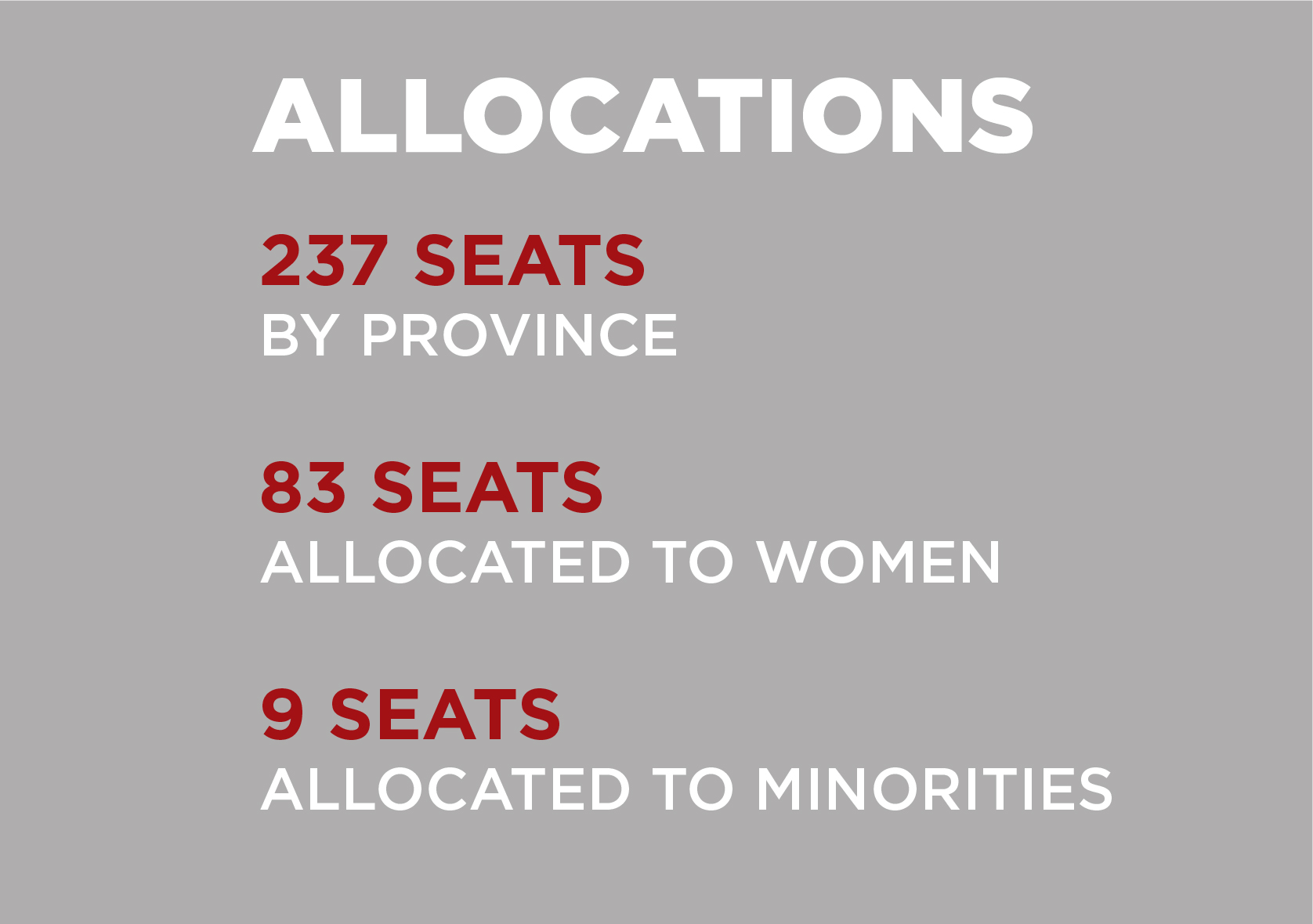
Sunni coalitions
Sunnis are expected to have a much weaker presence in the election than Shia not only due to divisions between their parties, but also due to the displacement of populations from the war against ISIS. Sunni-dominated provinces suffered the worst destruction during the war, and as a result, Sunni leaders requested a six-month delay in elections arguing that with the large number of IDPs, constituents would not have enough time to gather paperwork and update personal information in time for voting.
Sunnis feel a distrust of traditional Sunni politicians right now as they believe many of them have been profiting from IDP relief and post-ISIS reconstruction sent to Sunni provinces hit hardest by ISIS. This distrust has resulted in many Sunnis joining forces with Shia coalitions. There are two main Sunni parties taking part in the 2018 elections:
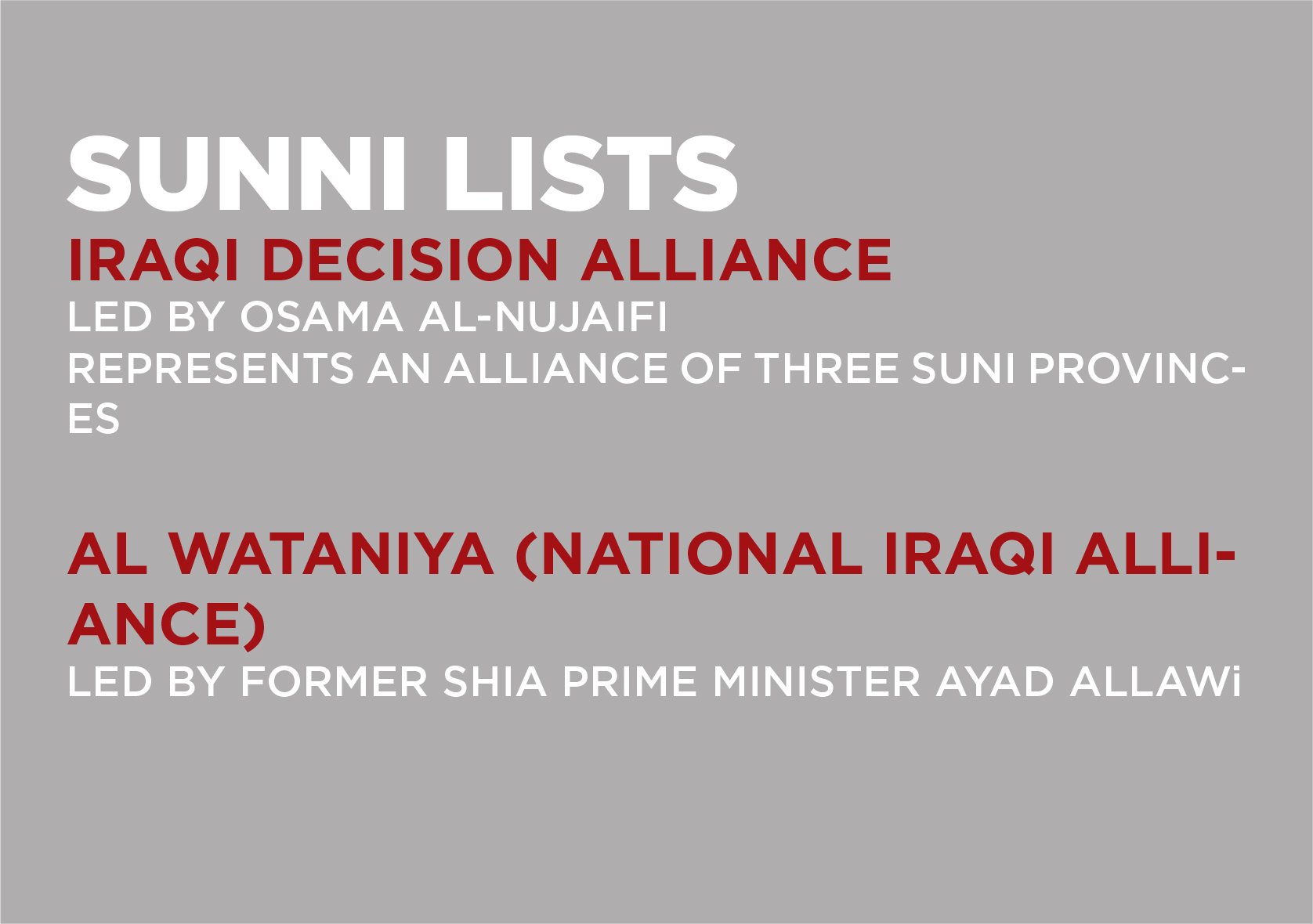
Qarar al-Iraqi (Iraqi Decision Alliance)
- Parties included: An alliance of members from Mutahiadoon and the Arab Project as well as the three major Sunni provinces of Nineveh, Saladin, and Anbar.
- Led by: Osama al-Nujaifi
- Overarching Ideology: Conservative
- Challenges: Controversy surrounds Osama al-Nujaifi’s brother, Atheel Nujaifi, a former governor of Mosul, who has a warrant out for his arrest.
Wataniya (National Iraqi Alliance)
- Parties included: A mixture of religious, secular, and national parties including both Sunni and Shia. This coalition is expected to be the most competitive against Abadi’s Nasr al-Iraq Shia coalition.
- Led by: Former Prime Minister Ayad Allawi, a Shia Muslim
- Overarching Ideology: Anti-sectarian, secular
- Challenges: He struggles to compete with Prime Minister Abadi’s popularity among Sunnis that he was able to garner by defeating ISIS in Sunni territories and by reclaiming disputed territories from the Kurds.
- Position on Foreign Policy: Advocates for national reconciliation and opposition to outside interferences.
Audrey Bolus and Savannah Carter are interns at the Rafik Hariri Center for the Middle East.
Image: Photo: Campaign posters of local candidates are seen ahead of the parliamentary election in Baghdad, Iraq May 3, 2018. Picture taken May 3, 2018. REUTERS/Thaier Al-Sudani
